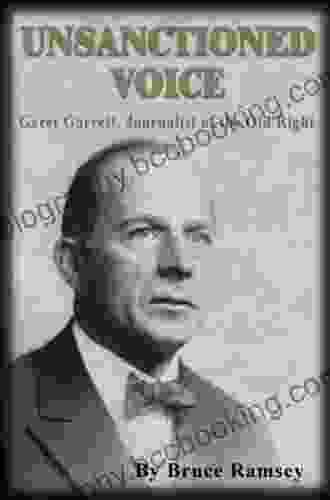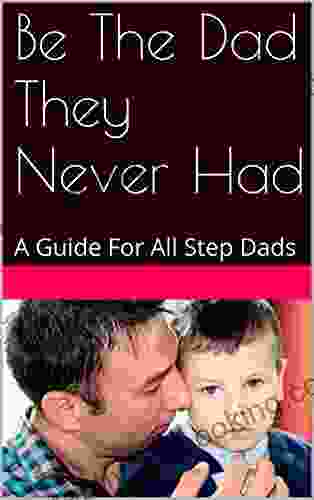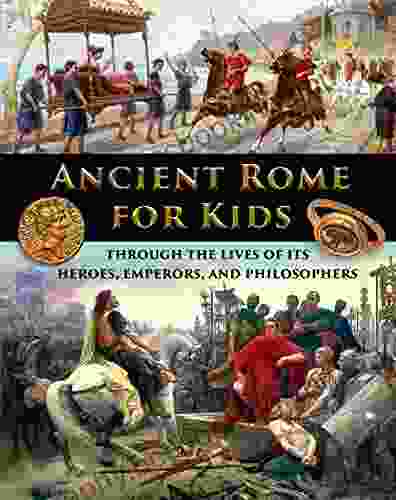Garet Garrett: The Maverick Journalist of the Old Right

Garet Garrett was one of the most influential and controversial figures in American journalism during the first half of the 20th century. A brilliant writer and a fearless critic of the New Deal, the welfare state, and the rise of the modern administrative state, Garrett's work remains relevant today, offering a unique perspective on the challenges facing our society.
5 out of 5
| Language | : | English |
| File size | : | 817 KB |
| Text-to-Speech | : | Enabled |
| Screen Reader | : | Supported |
| Enhanced typesetting | : | Enabled |
| Word Wise | : | Enabled |
| Print length | : | 290 pages |
| Lending | : | Enabled |
Garrett was born in 1878 in Adairsville, Georgia. He began his journalism career in 1901, working for the Atlanta Journal. In 1904, he moved to New York City, where he worked for the New York Evening Post and the New York Tribune. In 1913, he joined the staff of the Saturday Evening Post, where he remained for the next 25 years.
Garrett quickly became one of the most popular and respected journalists in America. His writing was clear, concise, and witty, and he had a knack for getting to the heart of complex issues. He was also a fierce advocate for free market capitalism and limited government. Garrett believed that the New Deal was a dangerous experiment in socialism that would ultimately destroy American freedom and prosperity.
Garrett's views put him at odds with many of his colleagues in the media. He was often accused of being a reactionary and an apologist for big business. But Garrett never wavered in his beliefs. He continued to write and speak out against the growing power of the state, even when it cost him friends and supporters.
In 1938, Garrett left the Saturday Evening Post to start his own magazine, The American Mercury. The American Mercury quickly became a leading voice of the Old Right, a group of conservative intellectuals who opposed the New Deal and the growing power of the state. Garrett used The American Mercury to publish the work of some of the most important conservative thinkers of the day, including H.L. Mencken, Isabel Paterson, and Albert Jay Nock.
Garrett continued to write and speak out against the New Deal and the welfare state until his death in 1954. He never saw his ideas become mainstream, but his work has had a profound influence on conservative thought and politics. Garrett's writings remain a valuable resource for anyone who wants to understand the challenges facing our society and the importance of individual liberty.
Garrett's Legacy
Garet Garrett was a brilliant journalist and a fearless defender of individual liberty. His work remains relevant today, offering a unique perspective on the challenges facing our society. Garrett's legacy is one of intellectual honesty, courage, and principle.
Garrett's writings have been praised by some of the most famous conservatives of the 20th century, including Russell Kirk, William F. Buckley Jr., and Milton Friedman. Kirk called Garrett "the most brilliant journalist of his generation," while Buckley said that Garrett was "one of the few men who could write with equal facility about economics, politics, and literature." Friedman said that Garrett was "a great journalist and a great economist."
Garrett's work is still being read and studied today by conservatives and libertarians. His writings offer a valuable resource for anyone who wants to understand the challenges facing our society and the importance of individual liberty.
Garet Garrett was a giant of American journalism. He was a brilliant writer, a fearless critic of the New Deal, and a lifelong defender of individual liberty. His work remains relevant today, offering a unique perspective on the challenges facing our society. Garrett's legacy is one of intellectual honesty, courage, and principle. He is a true American hero.
5 out of 5
| Language | : | English |
| File size | : | 817 KB |
| Text-to-Speech | : | Enabled |
| Screen Reader | : | Supported |
| Enhanced typesetting | : | Enabled |
| Word Wise | : | Enabled |
| Print length | : | 290 pages |
| Lending | : | Enabled |
Do you want to contribute by writing guest posts on this blog?
Please contact us and send us a resume of previous articles that you have written.
 Book
Book Novel
Novel Page
Page Chapter
Chapter Text
Text Story
Story Genre
Genre Reader
Reader Library
Library Paperback
Paperback E-book
E-book Magazine
Magazine Newspaper
Newspaper Paragraph
Paragraph Sentence
Sentence Bookmark
Bookmark Shelf
Shelf Glossary
Glossary Bibliography
Bibliography Foreword
Foreword Preface
Preface Synopsis
Synopsis Annotation
Annotation Footnote
Footnote Manuscript
Manuscript Scroll
Scroll Codex
Codex Tome
Tome Bestseller
Bestseller Classics
Classics Library card
Library card Narrative
Narrative Biography
Biography Autobiography
Autobiography Memoir
Memoir Reference
Reference Encyclopedia
Encyclopedia Bruce Heyman
Bruce Heyman Catherine Crier
Catherine Crier Bruce Watson
Bruce Watson Carol Wyer
Carol Wyer Carol Huber Cypher
Carol Huber Cypher Bryan Berard
Bryan Berard Caren Mcnelly Mccormack
Caren Mcnelly Mccormack Carlos Castaneda
Carlos Castaneda Carlos G Groppa
Carlos G Groppa Bruce Tremper
Bruce Tremper Bruce Maxwell
Bruce Maxwell Cathal Armstrong
Cathal Armstrong Brian Graves
Brian Graves Caroline Montague
Caroline Montague Candace Clark Trinchieri
Candace Clark Trinchieri Carma Gorman
Carma Gorman Cameran Eubanks Wimberly
Cameran Eubanks Wimberly Brian Feroldi
Brian Feroldi Bridget Alsdorf
Bridget Alsdorf Brian Leaf
Brian Leaf
Light bulbAdvertise smarter! Our strategic ad space ensures maximum exposure. Reserve your spot today!
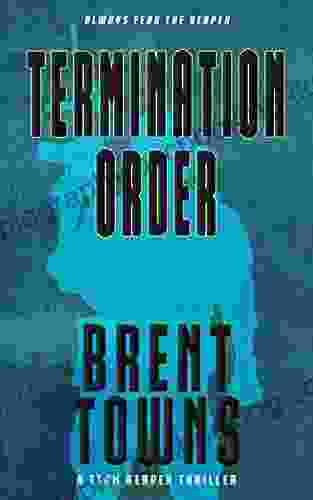
 Ted SimmonsTermination Order: Team Reaper Thriller – An Electrifying Tale of Courage and...
Ted SimmonsTermination Order: Team Reaper Thriller – An Electrifying Tale of Courage and... Xavier BellFollow ·16.8k
Xavier BellFollow ·16.8k Jeffery BellFollow ·16.7k
Jeffery BellFollow ·16.7k Glen PowellFollow ·7.4k
Glen PowellFollow ·7.4k Billy PetersonFollow ·18.2k
Billy PetersonFollow ·18.2k Vladimir NabokovFollow ·19.2k
Vladimir NabokovFollow ·19.2k Ken SimmonsFollow ·2.1k
Ken SimmonsFollow ·2.1k Pete BlairFollow ·4.5k
Pete BlairFollow ·4.5k Harvey BellFollow ·13.6k
Harvey BellFollow ·13.6k

 Andy Hayes
Andy HayesUnveil the Rich Tapestry of Rural Life: Immerse Yourself...
Step into the enchanting pages of "Still...

 David Mitchell
David MitchellUnlocking the Depths of Cybersecurity: An In-Depth Look...
In the ever-evolving landscape of...

 Seth Hayes
Seth HayesUnlock the Secrets of Watercolor Landscapes: 37 Tools for...
Embark on a...

 Tyler Nelson
Tyler Nelson15 Insightful Answers to Questions on Uterine Fibroid
Uterine fibroids...
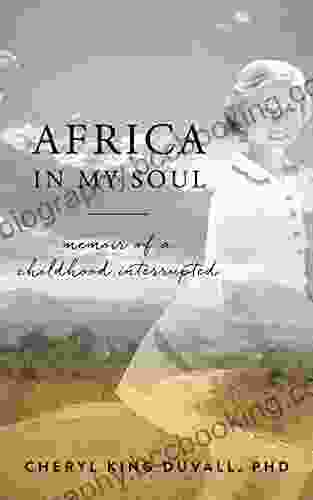
 Evan Hayes
Evan HayesAfrica In My Soul: A Literary Odyssey That Captivates the...
In a world where diverse cultures...
5 out of 5
| Language | : | English |
| File size | : | 817 KB |
| Text-to-Speech | : | Enabled |
| Screen Reader | : | Supported |
| Enhanced typesetting | : | Enabled |
| Word Wise | : | Enabled |
| Print length | : | 290 pages |
| Lending | : | Enabled |


